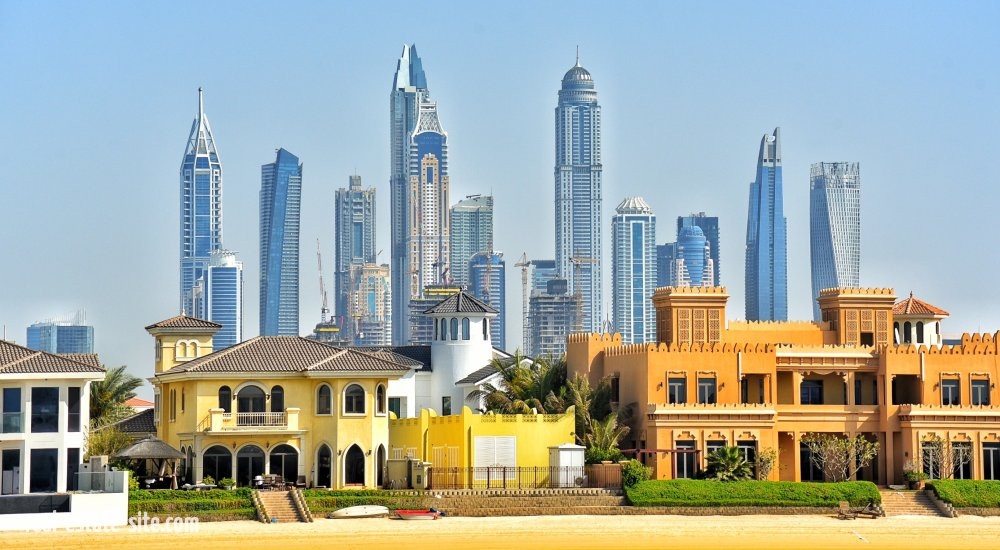Dubai, known for its impressive skyline and ambitious projects, has emerged as a global hub for commerce and business. The commercial real estate market in Dubai has played a pivotal role in this transformation, attracting investors and corporations from around the world. This article offers a comprehensive overview of the current state of the commercial real estate market in Dubai, examining its key drivers, recent trends, challenges, and future prospects.
- Economic Landscape: Dubai’s strategic location between Europe, Africa, and Asia, combined with a business-friendly environment, has made it a preferred destination for international trade and investment. The city’s diverse economy, driven by sectors such as finance, tourism, logistics, and technology, has created a strong demand for commercial real estate.
- Market Dynamics: a) Office Spaces: Dubai’s office market is characterized by high-quality infrastructure and innovative architectural designs. The demand for office spaces is driven by multinational corporations, regional headquarters, startups, and co-working spaces. Prime locations such as Dubai International Financial Centre (DIFC) and Dubai Marina have witnessed significant leasing activity.
b) Retail Sector: Dubai is renowned for its luxurious shopping malls, which attract both residents and tourists. The retail sector has evolved to embrace a mix of high-end brands, entertainment, and experiential offerings. The demand for retail spaces remains robust, although e-commerce has introduced some challenges.
c) Hospitality Industry: Dubai’s thriving tourism sector has led to a growing demand for hotel properties. The city’s world-class infrastructure, events, and attractions have contributed to increased tourist arrivals, driving the need for accommodation and hospitality-related developments.
- Key Trends: a) Sustainability: Dubai has made strides in promoting sustainable development, with a focus on energy-efficient buildings and sustainable infrastructure. Developers are increasingly incorporating green building practices to meet international sustainability standards, attracting environmentally conscious tenants and investors.
b) Flexible Workspaces: The rise of remote work and the gig economy has fueled the demand for flexible workspaces in Dubai. Co-working spaces and serviced offices have gained popularity, offering convenience, networking opportunities, and cost-effectiveness.
c) Technology Integration: Dubai aims to become a smart city, leveraging advanced technologies like artificial intelligence, the Internet of Things (IoT), and blockchain. Commercial real estate developers are embracing tech-enabled solutions to enhance tenant experience, optimize building operations, and improve security.
- Challenges: a) Oversupply Concerns: Dubai has experienced periods of oversupply in certain real estate segments, leading to downward pressure on prices and rental rates. Careful market analysis and planning are crucial to avoid potential imbalances between supply and demand.
b) Regulatory Environment: While Dubai has implemented investor-friendly regulations, periodic policy changes and legal complexities can present challenges for international investors. Staying informed about legal frameworks and working with experienced local partners is essential.
c) Geopolitical Factors: Dubai’s real estate market can be influenced by geopolitical events and global economic conditions. Shifts in international trade, political stability, and regional conflicts may impact investor confidence and market dynamics.
- Future Outlook: Despite challenges, Dubai’s commercial real estate market remains resilient, and several factors point towards a positive outlook: a) Expo 2020: The upcoming World Expo, to be held in Dubai, is expected to boost tourism, infrastructure development, and business opportunities. The event is likely to drive demand for commercial real estate, particularly in the hospitality and retail sectors.
b) Diversification Efforts: Dubai’s government has been actively diversifying the economy to reduce dependence on oil revenues. Initiatives in sectors like technology, finance, and healthcare are anticipated to fuel demand for commercial properties.
c) Long-term Vision: Dubai’s ambitious development plans, such as Dubai 2040 Urban Masterplan, indicate a commitment to sustainable growth and urban transformation. These initiatives offer potential opportunities for investors and developers.
Dubai’s commercial real estate market continues to evolve, driven by a dynamic economy, global connectivity, and a focus on sustainable development. While challenges persist, the city’s strategic initiatives, such as Expo 2020 and economic diversification efforts, provide a solid foundation for long-term growth. Investors and stakeholders in Dubai’s commercial real estate market should navigate the market with a comprehensive understanding of the local landscape and evolving trends to capitalize on the opportunities presented by this thriving global hub.

